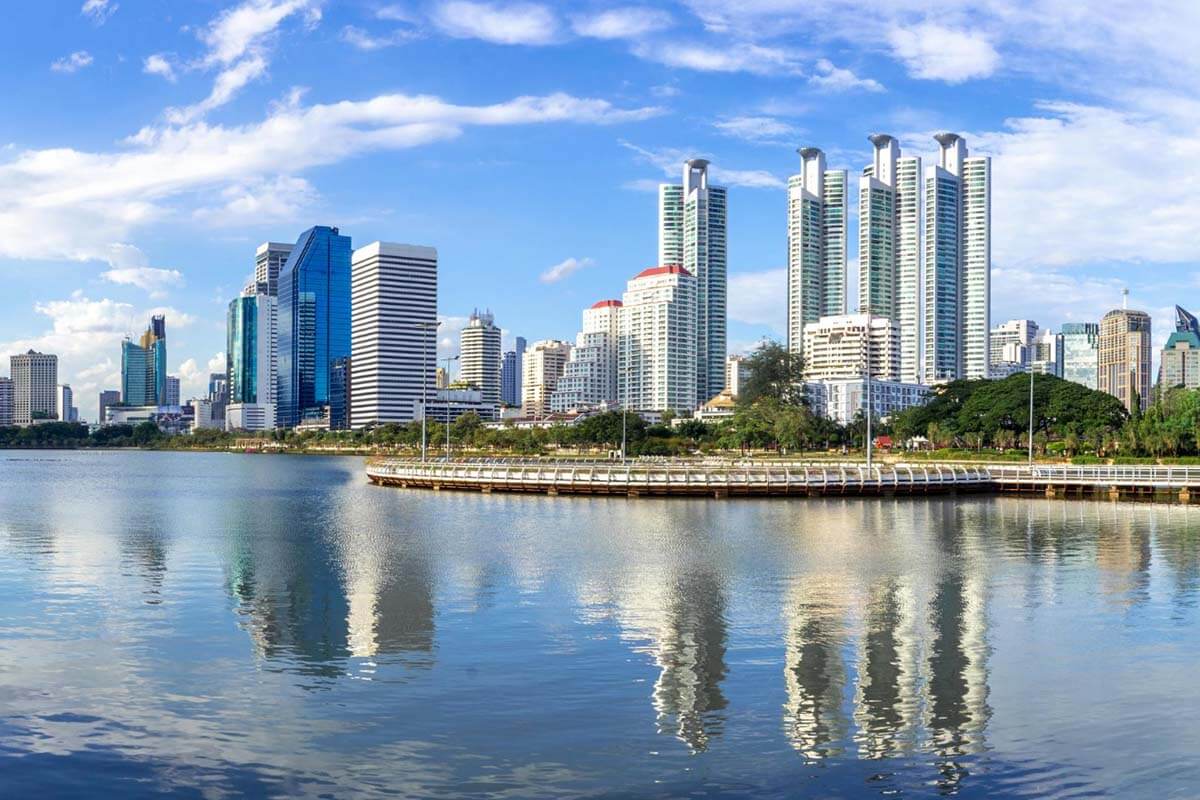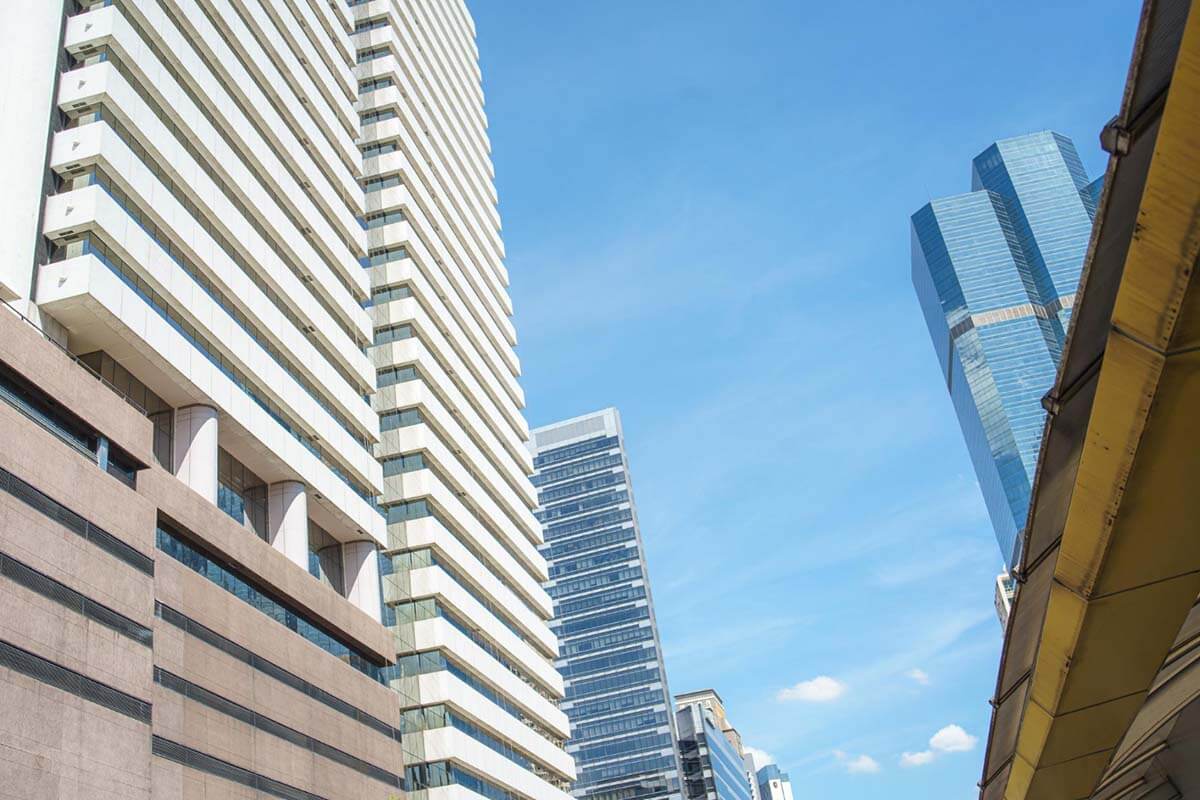
If you act skillfully, sometimes it is possible to make money even in an economic downfall. Have 21st-century depressions benefited Thai real estate investors?
Content:
- Depression in 1997
- Depression in 2008
- COVID-19 Depression in 2020
- Conflict Between Russia and Ukraine 2022
Depression in 1997
A bit of history.
The largest depression in Asia occurred at the end of the 20th century. It dramatically affected the economic and financial situation of the countries, and its impact was felt until the beginning of the 2000s.
Real estate prices in Thailand peaked in 1992 due to rising inflation. Contrary to popular opinion, real estate prices had already declined before the Asian depression in 1997. The decline began immediately after reaching a peak: prices fell by 2.4% per year from 1992 to 1997.
Immediately after the Asian depression in 1997, the decline accelerated. Prices fell by an average of 3.9% per year between 1998 and 1999. Real estate prices then recovered and rose at an average rate of 4.8% per year from 2000 to 2006. Thailand's GDP grew by an average of 5.1% per annum over the same period.
The fall in property prices resumed again in 2006 (by 1.4% per year) due to growing political uncertainty caused by the resignation of Prime Minister Thaksin Shinawatra.

Depression in 2008
The decrease in prices accelerated to 4.3% in 2007 due to the political situation in the country and reached 13.9% per annum in 2008 due to the new global economic crisis and ongoing political instability in Thailand. Since 2008, mass protests have caused significant damage to the economy, major airports were closed for 1 week in November, and the 4th East Asia Summit was later canceled. The exodus of foreigners from the country began.
New laws and amendments to the current Condominium Law were passed in 2008 to increase buyer confidence and prevent developer fraud.
- The Escrow Act, signed into law in May 2008, protects buyers from losses due to projects delayed or canceled by developers. A designated 3rd-party escrow agent holds the buyer's funds with a financial institution and transfers the funds after the buyer's and developer's obligations are fulfilled.
- The Consumer Trial Act, signed in August 2008, allows investors to hold developers accountable for any service not provided after the construction is completed. This forces developers to ensure that the finished property matches the one that was presented in the advertisement.
- A new law on condominiums, signed in July 2008, requires standardized sales contracts between buyers and developers mandated by the Home Office. Developers are forced to bear the cost of maintaining unsold condominiums.
These amendments are currently still in effect.
Thailand's economy entered a recession in the 1st quarter of 2009. Inflation in 2009 was at 0.5% compared to 5.8% in 2008. However, private investment continued to decline during the 1st quarter of 2009 as business confidence weakened due to the crisis.
Political turmoil has made Thailand significantly less attractive to buyers, especially foreign buyers. By June 2009, foreign demand for residential real estate had fallen by 90%. In the 2nd quarter of 2009 real housing prices in Thailand were 34.2% below their peak of 1992.
New residential property construction peaked in 1996 with the development of about 127,000 real estate units. Subsequently, it dropped sharply in 2008 - the volume of new housing construction was 55% below the peak value.
However, Bangkok experienced an oversupply of condominiums in 2009. Home occupancy plummeted to 73.1% during the 1st quarter of 2009 compared to 90.9% in the 4th quarter of 2008. Several development projects have been delayed or canceled due to financial issues associated with the global credit crisis.
Thailand's economy entered a recession in the 1st quarter of 2009 due to the effects of the global credit crunch and political turmoil.
In 2009, the government introduced 2 stimulation packages to cushion the effects of the recession on consumers and to slow down the economic slump.
The 1st package was announced in January 2009. The package included tax reductions in the real estate sector to encourage spending:
- Residential properties up to THB 300,000 are exempt from tax.
- Until March 2010, the property registration fee and special business tax were abolished.
- Mortgage interest expenses up to THB 100,000 per year are tax deductible.
COVID-19 Depression in 2020
A new depression began in 2020 with the COVID-19 pandemic. Property prices in Thailand had fallen, but only slightly. The main problem of the real estate market during the COVID-19 depression was the suspension and cancellation of many projects, which reduced the number of new properties. In some provinces, not a single new facility was built during the pandemic.
To increase purchasing power, the Ministry of the Interior introduced a reduction in the fee for the registration of property rights and legal acts on housing (costing under BHT 3,000,000) from 2% to 0.01% and preferential mortgage terms until the end of 2022. Mortgages without a down payment and with reduced mortgage rates were introduced. Also, the mortgage registration fee was reduced from 1% to 0.01%.
Low-interest rates have led to an increase in the level of household debt in Thailand. Thailand currently ranks 27th in the world in terms of GDP and 14th in terms of household debt to GDP ratio.

Conflict Between Russia and Ukraine 2022
A new depression factor that affected real estate in Thailand was the acute conflict between Russia and Ukraine, which began in February 2022. As a consequence, there was a sharp 8.6% increase in prices for construction and building materials in March 2022 compared to March 2021, prices increased by 5.3% compared to the average of last year and by 3.9% compared to the 4th quarter of 2021. There was an increase in energy prices. The cost of building materials and equipment also increased compared to last year: 4.6% for wood products, 6.8% for concrete, 12.7% for sanitary ware, and 6.6% for electrical and sanitary equipment.
Among the negative factors expected to affect business growth in 2021-2023 the key factors are:
- Household debt, which tends to continually increase and directly affects the purchasing power of people;
- Severity of lending to financial institutions;
- Oversupply in the market;
- Increase in prices for building materials.
Have the great global upheavals of our century benefited real estate investors? Definitely yes, but only the most skilled in investing. To support the economy and the population, the state introduces preferential measures and laws to ensure the safety of citizens. During the depressions of 1997 and 2008, there was a sharp decline in real estate prices, which, of course, was a very profitable time for investment. After each depression, there is an increase in housing prices, and is a perfect time to re-sell properties purchased at minimum prices. Such a rise could be observed from the end of 2009 until 2014. However, during the COVID-19 crisis, there was no sharp decline in prices. Due to the energy crisis at present, prices are beginning to rise, and are artificially lowered for housing affordability.
To seize a profitable time for investing, you should always keep your finger on the pulse by following the global economy and political situation not only in Thailand but also in the region as a whole.
